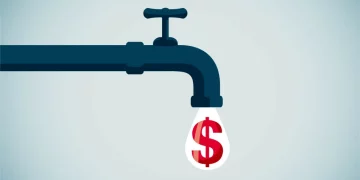In a sweeping escalation of its ongoing fight against video game piracy, Nintendo has filed a lawsuit seeking $4.5 million in damages from a Reddit moderator accused of facilitating widespread piracy of Nintendo Switch games. The lawsuit marks one of the most aggressive legal actions the gaming giant has taken against an individual user of a major social platform.
The defendant, James Williams, is alleged to have operated under the online alias “Archbox” and served as a lead moderator for the now-defunct subreddit r/SwitchPirates. According to Nintendo, Williams played a central role in managing a piracy network that illegally distributed hundreds of copyrighted Nintendo Switch games, modified firmware, and tools designed to circumvent the console’s security protections.
Nintendo’s legal complaint alleges that Williams helped users access what it described as “pirate shops”—web-based repositories of cracked games and software tools—by providing links, instructions, and support through Reddit threads and private messages. These digital storefronts reportedly offered thousands of pirated titles, including first-party Nintendo games such as The Legend of Zelda: Tears of the Kingdom, Mario Kart 8 Deluxe, and Super Smash Bros. Ultimate.
What differentiates this case from others is the level of involvement Nintendo attributes to Williams. He is not only accused of sharing links to pirated content, but also of actively maintaining these services and profiting indirectly through donation-based access systems. The company alleges that premium access to the pirate shops was granted in exchange for Nintendo eShop gift cards and other forms of monetary support, some of which were funneled to private wallets controlled by Williams and other operators.

Additionally, the lawsuit claims Williams helped distribute software designed to bypass Nintendo’s digital rights management (DRM) and security features. These tools allowed users to install pirated games on modified Switch consoles, turning the hardware into fully open systems that no longer required purchases from the official Nintendo eShop.
Nintendo’s legal team is seeking a default judgment after Williams allegedly failed to respond to cease-and-desist communications and court filings. The company argues that the lack of engagement justifies the imposition of maximum statutory damages for willful copyright infringement—amounting to $150,000 per work, across 30 titles specifically named in the complaint. The total comes to $4.5 million.
The lawsuit also demands a permanent injunction against Williams, which would prevent him from participating in any future piracy-related activities, managing related communities, or hosting sites and tools that allow others to access copyrighted Nintendo material without authorization. Nintendo is also requesting control or removal of any associated web domains, storage links, and remaining public posts tied to the piracy operation.
Legal experts say that Nintendo’s case hinges on whether the court accepts its argument that Williams’s role as a moderator extended into active facilitation and management of criminal piracy infrastructure. If the court finds Williams liable by default, the ruling could set a significant precedent in the broader fight against online piracy, particularly where digital communities blur the line between information-sharing and illegal distribution.
Williams, who has not yet made any public statement or legal filing in response, faces mounting pressure as the deadline for court proceedings approaches. If he does not contest the case, the court may rule entirely in Nintendo’s favor, leaving him responsible for both damages and legal costs.
This lawsuit is part of a broader campaign by Nintendo to crack down on piracy, modding, and emulation. Over the past several years, the company has taken legal action against individual developers, ROM-hosting websites, and even hardware modders. In one high-profile case, Nintendo successfully shut down a group producing and distributing mod chips for the Switch, which allowed users to load pirated games and unauthorized software.
While critics of the lawsuit argue that Nintendo is targeting individuals who may not fully understand the legal implications of their online activities, supporters counter that piracy has caused substantial financial harm to the gaming industry. According to Nintendo, piracy networks not only deprive developers of deserved revenue but also undermine legitimate platforms and user experiences.
The lawsuit has sparked heated debate across gaming communities, particularly on platforms like Reddit, Discord, and Twitter. Some users have called for greater transparency and fairness in how companies address modding and preservation, while others have defended Nintendo’s right to protect its intellectual property with forceful legal action.
This case also raises broader questions about moderation responsibilities on community platforms. If a moderator is found liable for enabling copyright infringement, it could place new pressures on unpaid volunteers who oversee large communities. Critics worry this could have a chilling effect on online forums where users discuss gray-area topics such as game backups, emulation, and console modding.
For Nintendo, however, the case represents another step in what has become a defining part of its corporate identity: an uncompromising stance on the control of its digital ecosystem. The company has long taken a hard line against unauthorized use of its software and trademarks, and has built a reputation for swift and aggressive legal action.
The court’s decision in the coming weeks will determine whether Williams will be forced to pay the $4.5 million in damages Nintendo is seeking. Regardless of the outcome, the case signals to others involved in online piracy communities that Nintendo is watching—and that even moderation roles on forums could carry substantial legal risk when intellectual property is involved.

As the gaming industry continues to grapple with the balance between ownership, access, and enforcement, this lawsuit stands as a high-profile flashpoint in the evolving conversation around digital rights, online community governance, and the future of content protection in the age of emulation and AI.











